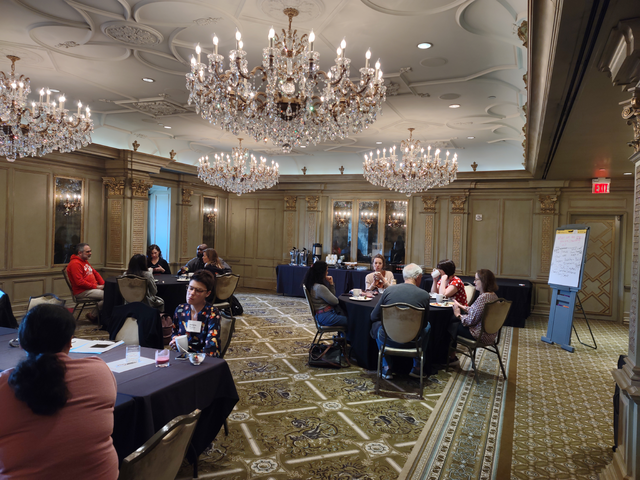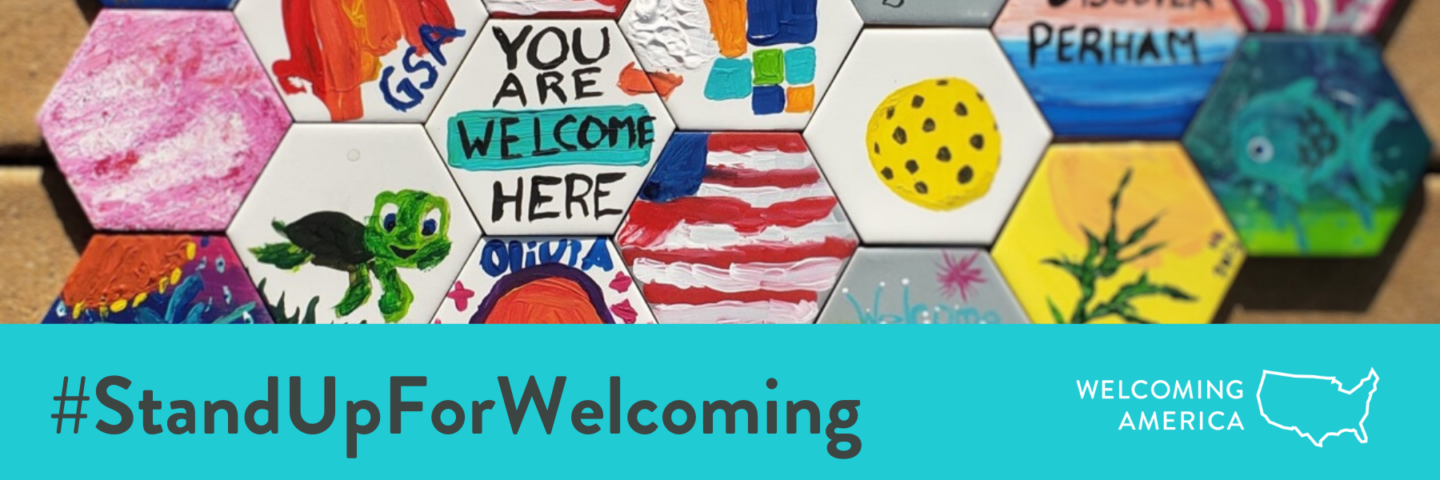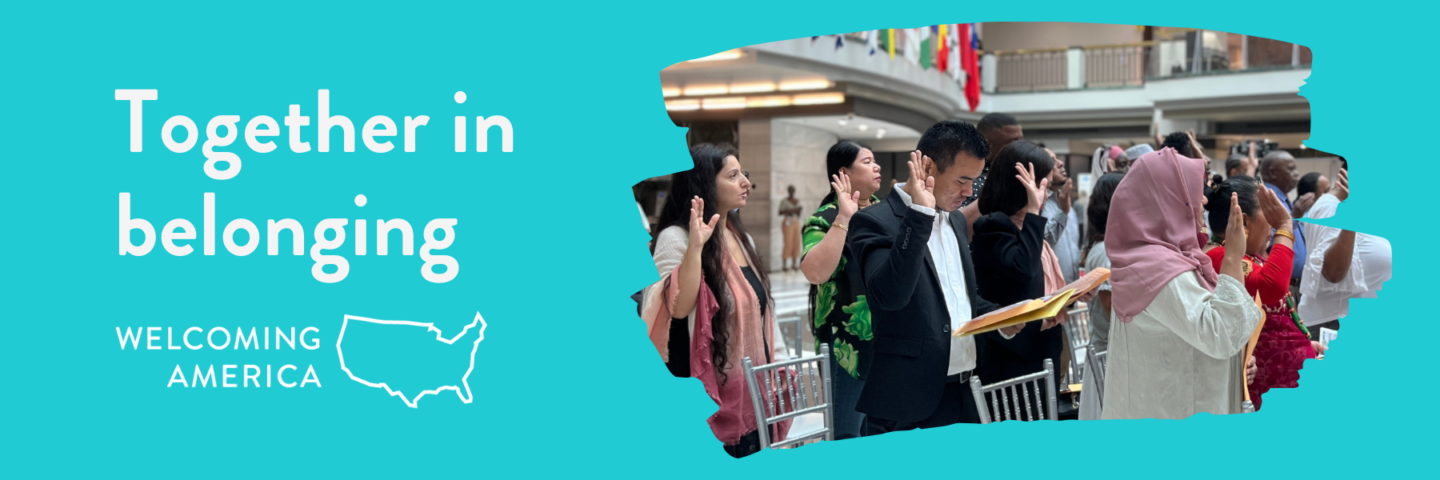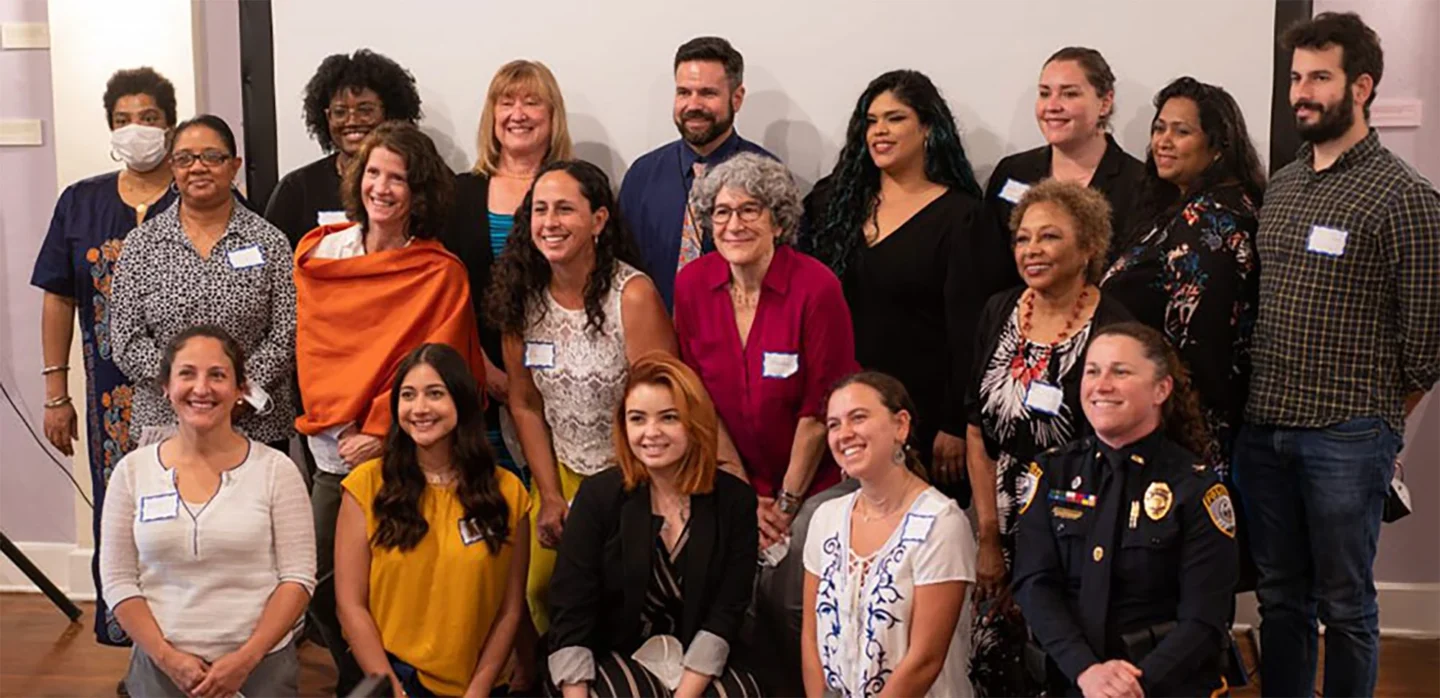
School boards in focus: sustaining democracy and pluralism by taking a step back
Through the pandemic, schools became one of the toughest places to navigate for students, parents, educators, and school board members. Over time, school board meetings became tense spaces where people released their frustrations on issues ranging from mask mandates to the role of race in student curricula, sometimes ending in school board members being removed or taken over entirely by angry community members.
Schools and educational institutions are essential pillars of any community, but especially in places that consider themselves welcoming and inclusive. With this in mind, Welcoming America partnered with fellow nonprofit organizations Faith Matters Network and Citizens University (with funding support from the New Pluralists collaborative) to host a retreat for school board members to put their experiences from the past two years into historical context, connect with each other, and learn how to continue this important work while sustaining themselves.
Isha Lee, deputy director of Welcoming America who spearheaded the retreat, said, “As a parent, I spent the past two years waiting to plan my family’s life based on a school board vote. Hearing what school board members dealt with during this retreat was brutal; you could see the strain on their faces. No matter how they align politically, the tension, risks, and pressure was undeniable. Fortunately, Welcoming America has deep experience and organizational tools ready for this exact type of situation.”
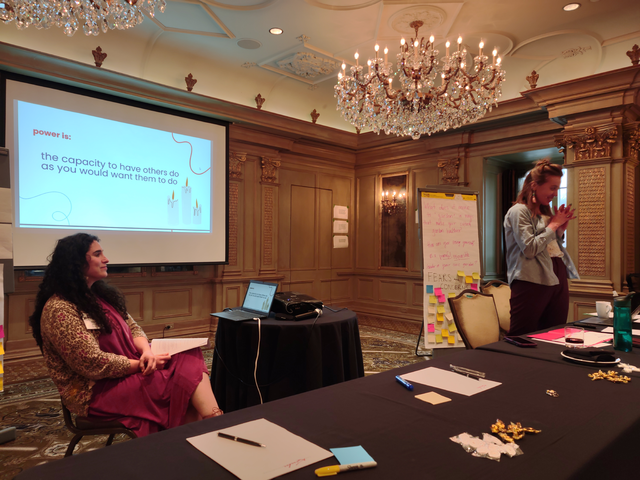
Photo by Isha Lee
From April 4-6, a diverse group of nine school board members from five states gathered in Asheville, North Carolina to discuss the trends among school boards, address polarizing issues, and manage conflict. Through sessions facilitated by staff from each nonprofit, participants discussed the history and role of school boards; the intersection of school boards, democracy, and pluralism; strategies, tools, and practices on sustaining oneself as a bridge builder in the community.
One school board member from Tennessee said, “School board leadership can be isolating because of sunshine laws, disinterest in local government, complexities of school systems, et cetera. The opportunity to connect with school board members outside of my board was a true gift. I loved the placement of school board issues in the context of democracy and civics. The self-care component was timely as well.”
The ability to connect with people in similar roles in different states was a shared highlight among participants.
“I made lasting, meaningful connections that will support and sustain my public service, and believe that I will maintain these relationships, both with the organizations and with the other school board members,” said one school board member from North Carolina.
Photo by Isha Lee
“I was so impressed with the deeply thoughtful approach to giving support to school board members, I have never had a group experience this impactful. I think a large part of why this was different was because the group was so small,” said another board member from Ohio.
As school boards continue to face challenges in navigating partisan environments and controversial topics, the retreat served as a reminder that community leaders are not alone in the broader struggle for democracy, pluralism, and ultimately, belonging for all. Education – and the leadership charged with stewarding it – is essential to welcoming communities; supporting its leaders is key to ensuring it remains that way.


